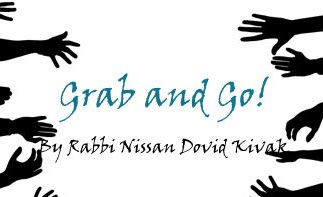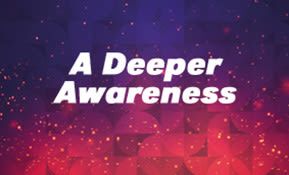
In Order, or Out of Order
Rabbi Nissan Dovid Kivak explains Rebbe Nachman’s teaching from Likutei Moharan II:82 about “in order” – when things go our way, and the opposite, when they don’t…

Translated by Aaron Yoseph
There’s life that’s called – “in order” – you have an Uncle who sends a nice big check each month, you own your home, your wife and children are happy and healthy, learning is going good. Everything’s good. But there’s also another type of life – called “not-in-order”, where things look very different. Where Hashem’s kindness and love aren’t so clearly apparent. Where a person feels that he should have been settled down and organized a long time ago. He should have got somewhere – but he hasn’t. The primary feeling of ‘not-in-order’ comes from a person wanting to be good, and it not working out as he wanted.
Hashem wants to give us everything good – physically and spiritually. That everything in our lives should be in order. The Sifrei Chassidut and the Zohar teach us how Hashem is everywhere, and in everything. There is nothing but Him. This is an incredible teaching, but we have to understand how to relate to it, so it won’t confuse us. Because if Hashem is everything – what am I doing? This is why Hashem gave us the Shulchan Aruch, which spells out exactly what He wants us to do, showing that our deeds and free will do count. The primary meaning of being an ‘expert at returning’ is to know that, even if I’ve fallen, I’m upset about it and I know that Hashem is here with me and wants me to transform this descent into an ascent.
When a person sees that he isn’t successful, he thinks he’ll never make it. The Avos kept the Torah perfectly. But not many people can reach those levels and “there’s no King without a people.” Hashem can’t be King over a few individuals. That’s why Hashem needs us – simple people who don’t know any deep kavanot. In His mercy he gave us simple mitzvot to do. One mitzvah with $1,000,000 reward wasn’t enough, so Hashem gave us hundreds of mitzvot – both positive and negative. This is the Torah ShBa’al Peh, the Malchus, Eve (Chava).
This is what Chava represents – the simple fulfilling of the mitzvot. And in this itself we need to do teshuva, because sometimes even this doesn’t work out for us, and we get upset about it, and move further away from Hashem, through the mitzvot themselves. This is upside-down – Hashem gave us the mitzvot to come closer to Him. But with our arrogance we want things to go perfectly and be a Tzaddik, so the mitzvot themselves push us further from Hashem. This is the strictness and severity of Yitzchak that needs to be sweetened with laughter. We only come close. Understand that even the ‘not-in-order’ was really the ‘order’ that Hashem wanted.
With this we’ve connected the two Torah’s together. We need to be happy. You’re a Breslever – why are you so serious and sour-faced? That’s a Chillul Hashem (desecration of Hashem’s honor). Put on a happy face. Otherwise people will think that someone who learns Torah is miserable. If someone lives amongst irreligious people he could bring many of them back in teshuva, if he has a joyous face.
The main thing is to not get broken by the ‘not-in-order’. The Rebbe teaches us how to turn this itself into ‘in-order’, and to draw the joy of the festivals to the whole year. Whatever a person’s going through – nothing’s going right, he can’t sleep, he has hassles, he’s not learning, not davening, and his Yetzer Hora is burning inside him – he can know that all of this is perfectly ‘in-order’ – why? – because Hashem is running it all. “I have nothing to contemplate or work out, if it happened to me, Hashem did it to me. Full stop.” This is why we mustn’t think about the past. “Do I deserve something? Hashem is giving me kindnesses and running everything. He sending me through descents that I need to go through. Whatever happened is not my business.”
This world is not-in-order, yet we can still live in it with vitality and joy. When we know that everything comes from Hashem, we reveal Hashem’s Kingship, His sovereignty. With this mindset we can accept whatever happens to us with love, with trust in Hashem and save ourselves from anger, stress and anxiety – “This is what Hashem wants, it’s all in order.” To achieve this we need to do hitbodedut and daven to have inner tranquillity.
The main thing is to come to a true life of joy and chiyut, where our parnasah and other challenges don’t ruin our days. Hashem should help us to get through all the obstacles with joy and dancing and merit living a true life like Sara Imainu. Amen.







11/09/2011
hitbotdedut What if this is also 'not in order'- one struggles mightily to be able to do hitbotdedut, and doesn't often succeed, and gets tired of the struggle as well?
11/09/2011
What if this is also 'not in order'- one struggles mightily to be able to do hitbotdedut, and doesn't often succeed, and gets tired of the struggle as well?